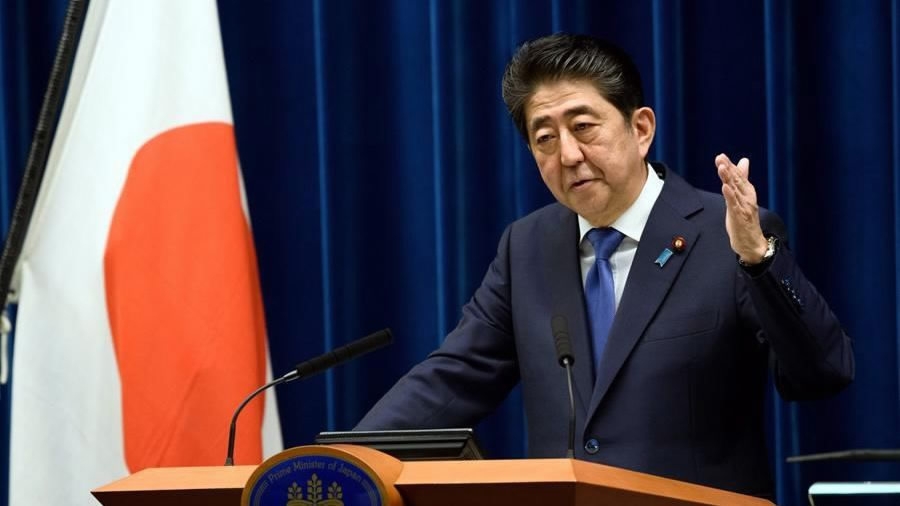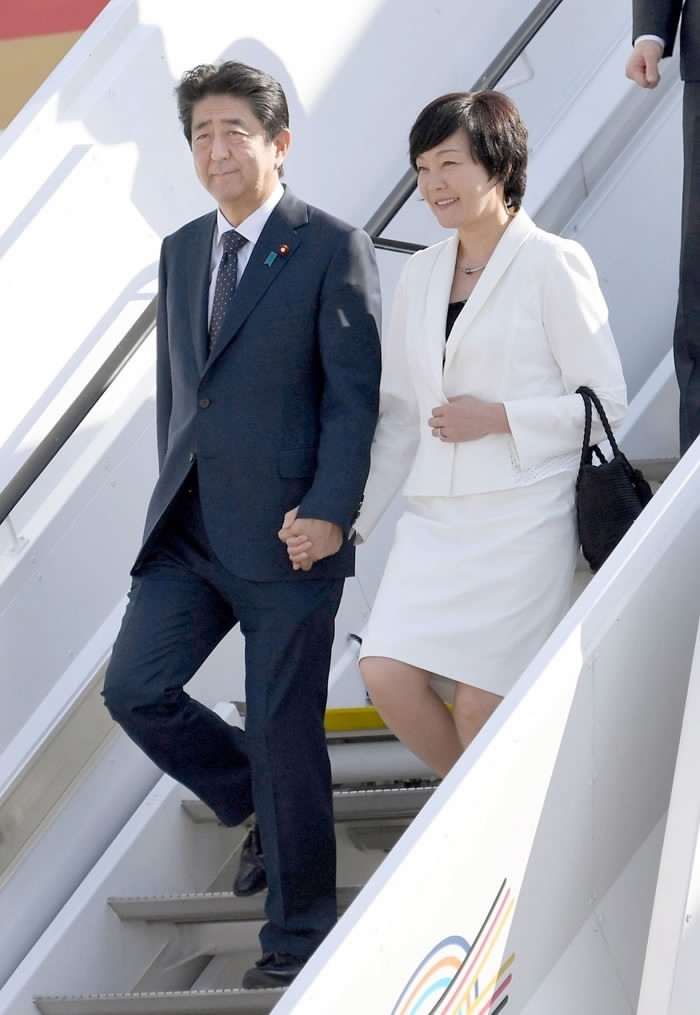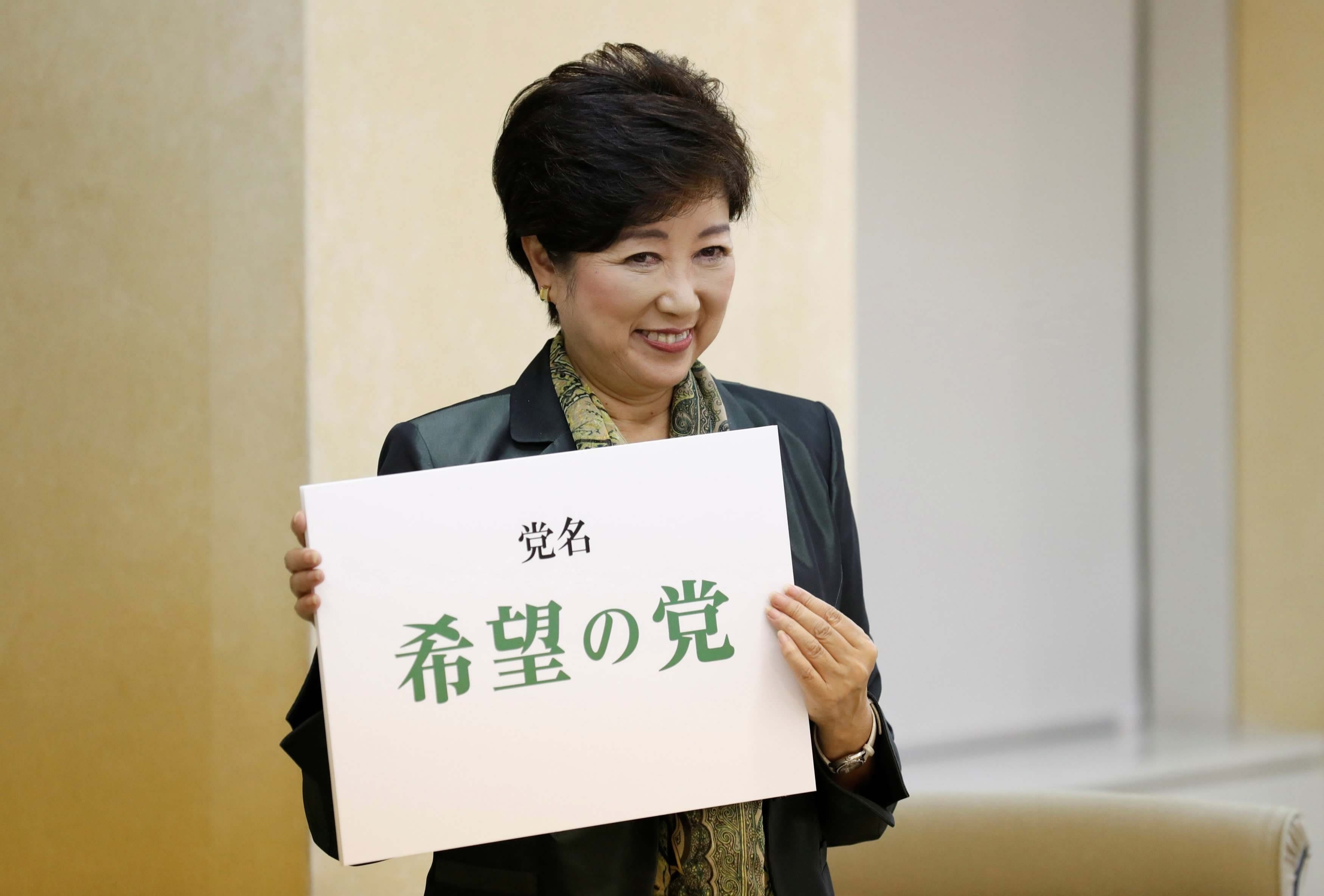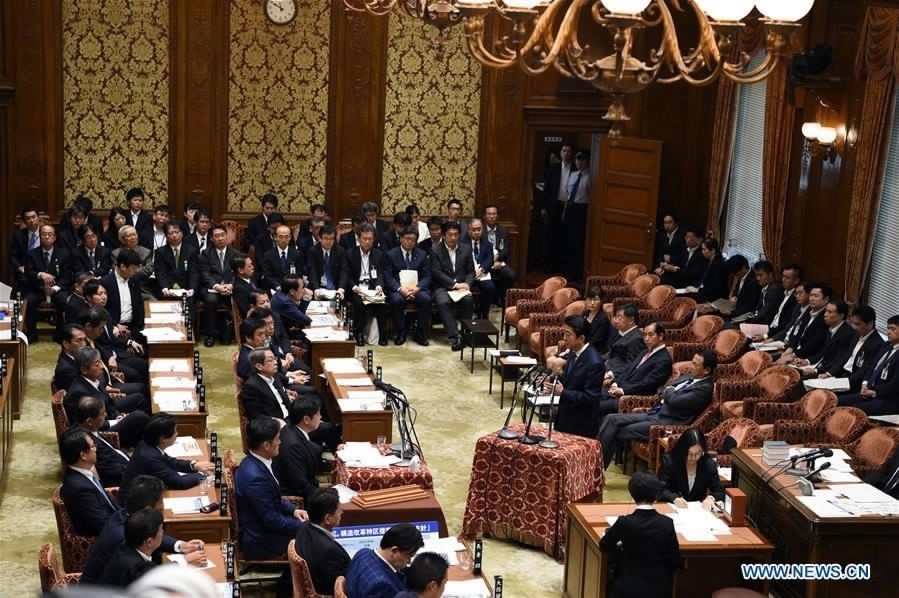
Opinions
12:10, 29-Sep-2017
Opinion: Japan is fishing in Troubled Waters
Guest commentary by Hou Jun and Liu Jianna

Japan’s motives behind its overreaction to the Korean Peninsula nuclear issue should sound the alarm for peace prospects in northeastern Asia and even the world.
As the Korean Peninsula nuclear issue becomes more heated than ever, Japan’s reaction to it particularly provides much food for thought. In recent days Japan has shown more sensitivity to the issue than South Korea which is on the frontline of the Korean Peninsula standoff. Japan is trying to fish in troubled waters by ratcheting up tensions to boost the Abe administration’s approval ratings, and pushing for its military expansion.

Japanese Prime Minister Shinzo Abe (L) and his wife Akie arrive in Hamburg, Germany to attend a G20 summit, July 6, 2017. /VCG Photo
Japanese Prime Minister Shinzo Abe (L) and his wife Akie arrive in Hamburg, Germany to attend a G20 summit, July 6, 2017. /VCG Photo
After years of evolution of the Korean Peninsula nuclear issue, Japan has formed a certain consensus on the so-called threat of the issue both on a governmental and civil level. Thus the Abe administration’s overreaction to the issue has inevitably sparked panic among the public. Following DPRK’s nuclear test on August 29, Japan activated its air defense warning for the first time since its defeat in World War Two, alarming the public and disturbing the operation of the Shinkansen (bullet train) to some extent. The Japanese society has criticized the Abe government’s overreaction, joking that the prime minister was trying to frighten the public.

Tokyo Governor Yuriko Koike holds a placard reading her new party name "Party of Hope" during a news conference at Tokyo Metropolitan Government Building in Tokyo, Japan, September 25, 2017. /Reuters Photo
Tokyo Governor Yuriko Koike holds a placard reading her new party name "Party of Hope" during a news conference at Tokyo Metropolitan Government Building in Tokyo, Japan, September 25, 2017. /Reuters Photo
Japanese Prime Minister Shinzo Abe recently claimed that Japan would accelerate the revision of the National Defense Program Guideline and the Plan for Medium-term Adjustments of the Defense Forces with the aim of lifting the ban on the right of collective self-defense and shelve the country’s pacifist Constitution. Japan's new Defense Minister Itsunori Onodera has also announced that the Abe administration decided to introduce the US’s advanced land-based Aegis system in order to strengthen Japan’s anti-missile defense system. Japan has always attempted to break away from its pacifist Constitution and expand its military on the pretext of threat posed by the Korean Peninsula nuclear issue. Nonetheless the Abe administration’s overreaction to the issue has successfully diverted the public’s attention to its scandals and led to a rebound in Abe’s approval ratings.

Japanese Prime Minister Shinzo Abe speaks in a special session of the House of Representatives Budget Committee in Tokyo, Japan, on July 24, 2017. /Xinhua Photo
Japanese Prime Minister Shinzo Abe speaks in a special session of the House of Representatives Budget Committee in Tokyo, Japan, on July 24, 2017. /Xinhua Photo
The Chinese government has made multiple statements with regards to the hidden motives behind Japan’s overreaction to the Korean Peninsula nuclear issue, urging relevant countries not to take advantage of the issue and cause more trouble. Obviously Japan’s selfishness would only discredit the diplomatic efforts of relevant parties and increase the difficulty of solving the problem. Moreover, the Abe administration’s attempts to expand the country’s weaponry would only intensify the security dilemma in northeastern Asia and aggravate the already fragile situation. What’s worse, Japan’s hype over the issue has led to the rise in calls within the Japanese society for the country to acquire nuclear weapons. Some politicians and media outlets have openly discussed whether Japan should develop its own nuclear arsenal. If Japan was more inclined to acquire nuclear weapons because of the hype about the Korean Peninsula issue, world peace would be in jeopardy.
(Hou Jun is a researcher at the Pangoal Institution and APD Institue. He holds a PHD in the international relations from China Foreign Affairs University; Liu Jianna is a Senior Editor at China Daily. The article reflects the author's opinion, and not necessarily the views of CGTN.)

SITEMAP
Copyright © 2018 CGTN. Beijing ICP prepared NO.16065310-3
Copyright © 2018 CGTN. Beijing ICP prepared NO.16065310-3